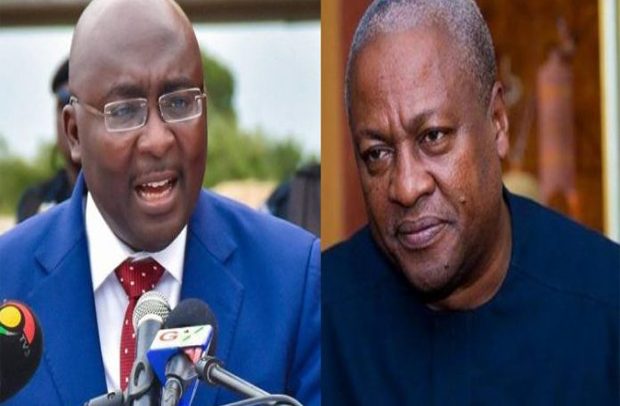
“Religion is the opium of the people”—Karl Marx
From ancient civilizations to modern states, religion has played a foundational role in shaping how societies understand themselves and their place in the world.
As a core institution in human society, religion has long guided the moral compass of communities, offered existential answers, and provided solace in times of uncertainty.
But in the ongoing quest for sustainable development—particularly in the Global South—questions persist about the true impact of religion: Is it a force for unity or division? Progress or regression? Morality or manipulation?
With religion’s potential to inspire peace, compassion, and collective purpose, one might assume it to be a natural partner in the journey toward societal progress.
However, history tells a more nuanced story. From holy wars and colonial conquests justified in God’s name to modern-day religious extremism and its socio-political fallout, the intersection of faith and development is far from straightforward.
This two-part article series seeks to delve into these tensions by exploring the role of faith as both a spiritual anchor and a potent social force, often co-opted by power structures for ends far removed from its professed ideals.
It unpacks that complexity, asking whether religion—as practiced and institutionalized—has truly advanced human flourishing or, as Marx warned, simply dulled the senses of the oppressed.
The Paradox of Faith: Religion’s Role in Shaping Society and Development
To understand whether religion can genuinely serve the cause of sustainable development, we must begin by grappling with its foundational role in shaping human society.
Far from being a peripheral concern, religion has long provided the stories, values, and moral codes that influence how communities envision justice, order, and progress.
Religion is undeniably a central pillar in the fabric of every society. From childhood, individuals are shaped by the cultural and spiritual narratives that surround them—stories that attempt to answer the deepest human questions: Why are we here? What is our purpose? Why do suffering and joy exist side by side?
These existential inquiries naturally drive us toward something greater than ourselves. Most societies, across time and geography, respond with a theistic explanation: that there is a Supreme Being—God—who created the universe and governs its affairs.
Religion, then, becomes the framework through which people understand life, death, morality, and meaning. This framework is often inherited based on the dominant belief system of one’s community or family lineage, resulting in a diverse world of doctrines, rituals, and worship styles.
Despite the differences, most religions teach reverence for a higher power and promote moral conduct, often rooted in ideals of love, justice, and service to others.
Given these lofty principles, one might expect religion to consistently foster personal inner peace and societal harmony. Indeed, if religion is a channel to a loving, wise, and just deity, then it should be a powerful agent for unity, compassion, and holistic development.
In indigenous African governance, for instance, religious leaders—priests, oracles, and spiritual elders—were not mere ceremonial figures; they were essential advisors to kings and custodians of communal ethics.
This integration of spiritual authority into political life was seen as a safeguard against tyranny and moral decay. Similarly, in Western democracies, political leaders often seek validation and moral guidance from clergy or religious institutions.
Yet, for all its spiritual authority and historical influence, religion’s track record in advancing peace, justice, and sustainable development is mixed. While it has inspired acts of selfless service and nation-building, it has also been implicated in conflict, oppression, and stagnation.
Thus, we are compelled to ask: has religion truly fulfilled its promise as a force for good in society, or has it too often been co-opted by power for ends that contradict its highest ideals?
Yet, the lofty ideals and unifying potential of religion often meet a stark contradiction in practice.
Despite its teachings of peace and compassion, religion has frequently been weaponized—transforming sanctuaries into battlegrounds and faith into fuel for conflict. How do we reconcile a spiritual doctrine of love with its repeated entanglement in war?
When Faith Wields a Sword
Should religion support war? This question strikes at the heart of one of the most controversial intersections in human history. While religion is typically associated with peace, compassion, and divine love, it has paradoxically played an enabling role in numerous violent conflicts.
Some argue that when the cause is just—such as defending one’s nation or protecting the innocent—religion can and should support warfare. However, history shows that this justification has often been misused.
The pursuit of power, veiled as the pursuit of peace or justice, has frequently resulted in bloody confrontations. Religious rhetoric has served as both sword and shield, legitimizing invasions, conquests, and acts of vengeance by clothing them in spiritual virtue.
From ancient empires to modern states, the narrative of divine approval has been invoked to rally armies and quiet dissent.
When religious leaders bestow blessings upon political rulers and their military campaigns, a dangerous fervor is often stirred. This passion—fueled by conviction and a sense of divine duty—turns otherwise peaceful citizens into zealots.
The cries of “God is on our side” have echoed through history, turning neighbors into enemies and continents into battlefields. The tragic irony is that while one side may claim victory, both sides usually suffer irreparable losses: the death of innocents, destruction of livelihoods, fractured societies, and generational trauma.
Hence, far from facilitating development, such religiously-fueled wars often reverse progress, leaving devastation in their wake.
Whether it was the Crusades, sectarian conflicts in Ireland, or ongoing strife in places like Northern Nigeria, the question remains—can any faith truly justify war in the name of a loving God?
Religious violence, however, is not limited to overt warfare. The legacy of colonialism and slavery reveals a more insidious deployment of faith—as a tool of domination cloaked in salvation. Among the most sobering examples is the role of Christianity in legitimizing imperial conquest and human exploitation across continents.
Christianity’s Role in Colonization and Slavery
Christianity played a significant role in European colonization and the transatlantic slave trade. While missionaries often presented themselves as benevolent agents of civilization, their activities frequently aligned with colonial powers, facilitating the subjugation and exploitation of indigenous populations.
The Church’s involvement in these processes has been documented, highlighting a complex relationship between religious institutions and colonial enterprises.
Religious justifications for slavery were also prevalent. Biblical passages were interpreted to endorse the practice, with some proponents citing scriptures to legitimize the enslavement of Africans. This theological backing provided moral cover for the inhumane treatment of enslaved individuals.
Moreover, the Church’s complicity extended to economic interests, with institutions like the Church of England investing in companies involved in the slave trade. Such entanglements underscore the extent to which religious bodies were intertwined with the mechanisms of colonization and slavery.
The consequences of these actions were devastating. Enslaved individuals endured brutal conditions, and entire communities were disrupted or destroyed.
The legacy of these events continues to impact societies today, prompting ongoing discussions about the role of religion in historical injustices and the need for reconciliation and reparative measures.
While Christianity was once used to justify colonial oppression, it also birthed cultural forces that radically reshaped the modern economy.
Nowhere is this more evident than in the rise of capitalism—where religious values around work, thrift, and divine favor helped give birth to a powerful, yet paradoxical, model of development. The second part will address this and others.
Please let’s interact: 1 (914) 259-0242
![]()
The author is a dynamic entrepreneur and the Founder and Group CEO of Groupe Soleil Vision, made up of Soleil Consults (US), LLC, NubianBiz.com and Soleil Publications. He has an extensive background In Strategy, Management, Entrepreneurship, Premium Audit Advisory, And Web Consulting. With professional experiences spanning both Ghana and the United States, Jules has developed a reputation as a thought leader in fields such as corporate governance, leadership, e-commerce, and customer service. His publications explore a variety of topics, including economics, information technology, marketing and branding, making him a prominent voice in discussions on development and business innovation across Africa. Through NubianBiz.com, he actively champions intra-African trade and technology-driven growth to empower SMEs across the continent?.
The post The Business Strategy Analyst with Jules Nartey-Tokoli: Faith, war, and development (1): Unpacking the complexities appeared first on The Business & Financial Times.
Read Full Story




















Facebook
Twitter
Pinterest
Instagram
Google+
YouTube
LinkedIn
RSS